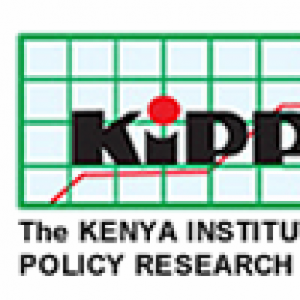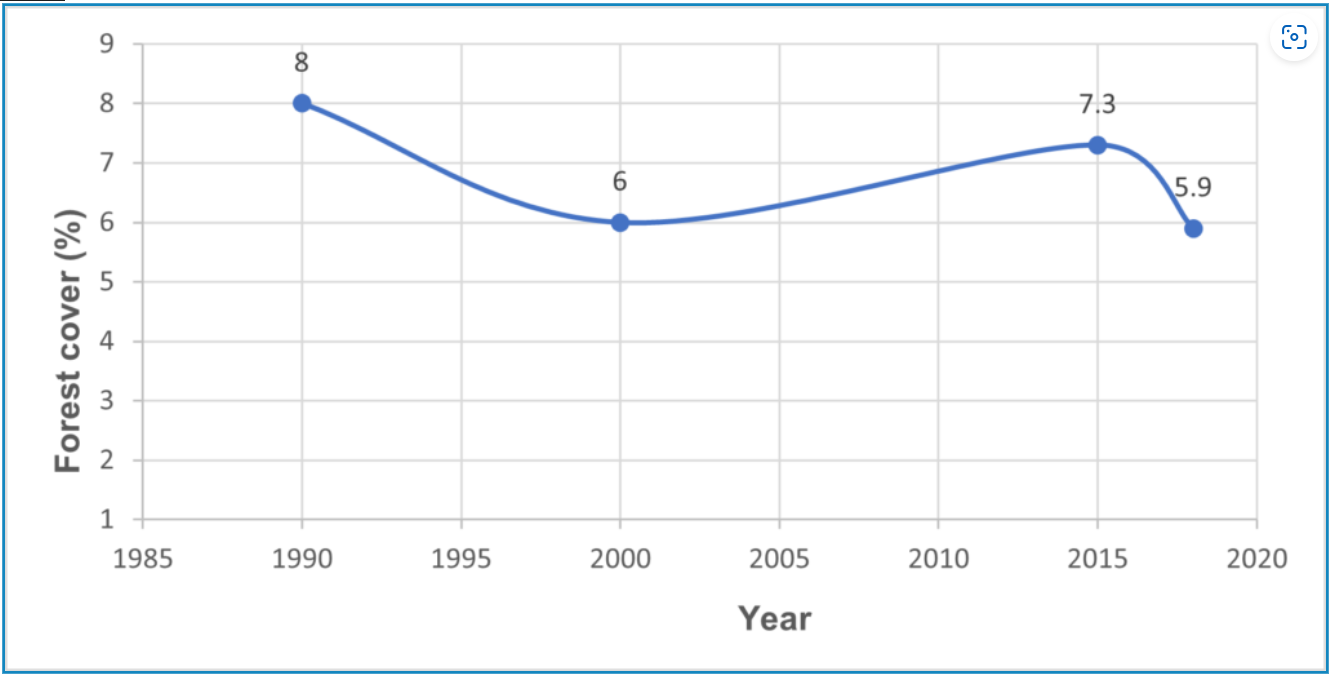Public service is central to achieving sustainable development. It provides public goods and services such as infrastructure, education, health, law and order, and security. Further, public service implements public policy key among them the development of policy. At the community level, acts of public service have seen different communities protected from extinction through protection of community owned resources, protection of their cultures and traditions, equitable distribution of resources and provision of other basic public services to the communities. Access to and delivery of public service continues to be a major area of focus in ensuring responsiveness to the needs of the citizens. Thus, overtime public service reforms have been instituted to enhance effectiveness and productivity of the public service.
In Kenya the Public Service Commission (PSC) established by Article 233 of the constitution is mandated to establish and abolish public offices, appoint persons to hold offices, ensure that the public service is efficient and effective and to promote the values and principles of governance under article 10 and 232 of the constitution. Article 232 establishes values and principles of public service entrenching high standards of professionalism in public service. This includes responsiveness, prompt, effective, impartial, and equitable provision of service; high standards of professional ethics; efficient, effective, and economic use of resources; and transparency and accountability. With the devolved system of government in place, the county governments are responsible for public service as spelt out in article 235 of the constitution. In this regard, they have established County Public Service Boards (CPSBs).
Despite this, there are key important elements that providers of public services need to consider which are crucial to the development of any given society and which is not adequately utilized in the Kenyan public service. As the country celebrates the public service day the following key elements are important for consideration.
Sustained momentum in public sector reforms
Since 1980s, the government has seen a renewed momentum in improving service delivery. The civil service reform program was adopted in early 1990s aimed to build a public service workforce that was responsive to the needs of the citizens. Under the economic recovery strategy, the reform agenda includes efforts to nurture and instil attitudinal change in the public service. Further, the Kenya Vision 2030 identifies public sector reforms as key in the transformative agenda with expectation that public service is citizen-focused and results-oriented institutions in serving a rapidly growing economy and society. A public service transformation strategy was adopted aimed at creating an efficient and effective public service with moral and ethical values and ethical standards and a highly motivated human resources for efficient public service delivery. The 2010 constitution further spells out the expectations in public service delivery. With the established new system of government in 2013, an integrated approach to service delivery was adopted which saw the establishment of Huduma Centres. Several public sector reforms have already been carried across the first two Medium Term Plans (MTPs) of Vision 2030 (MTP I 2008-2012, MTP II 2013 -2017). Under, MTP III (2018-2022) the reforms are expected to build and strengthen institutional capacities in the public service, sound financial management, efficient and fair collection of taxes, and transparent processes. These reforms will place emphasis on the delivery of public services and in the implementation of government “Big Four” transformative agenda.
Capacity building
Capacity building in public service is important for the continuous development and improvement of public service. This may be in the emerging areas of innovation and technology as well as in public policy research to understand behaviour of public service seekers to support effective delivery of public services. Having relevant technical capacity to formulate public policy; implement programmes and nurture leadership skills has been a priority for the government. With the Vision 2030, the government in its renewed effort to build capacity for the public service identified Kenya School of Government as a flagship project. The School replaced Kenya Institute of Administration (KIA), aiming at providing research and training for transformative leadership.
In 2015, the training policy was reviewed, providing a framework for structured training, competency development and assessment, knowledge and talent management, entrenchment of values and principles of public service, human resource development audit and development of monitoring, evaluation and reporting framework for human resource development programs. KIPPRA was established in 1997 out of the need to create capacity for policy research and analysis in strengthening the public policy process for economic and social development. Thus, the purpose for which the Institute is established is to develop human and institutional capacities which shall, by undertaking economic forecasting, policy analysis and research, contribute to the formulation of medium and long term strategic perspective for the economic and social development of the country.
Data collection and provision
Data is very essential in delivering public service. With timely and quality data, it is possible to monitor emerging policy issues and support in generating evidence policy making in achieving sustainable development. Data is also essential for tracking progress in implementation of public policies which allows to identify gaps and respond in time to facilitate successful implementation. Furthermore, measuring outcomes is necessary in tracking the achievement made in the development agenda and strategizing for further areas of action. So far, the country has made tremendous progress in data collection, including the review of the Statistical Act 2019 giving the Kenya National Bureau of Statistics (KNBS) its professional independence, access to government legal services or representation and establishment of offices across the country. Further, KNBS recently launched the Kenya Strategy for Development of Statistics (KSDS), a country wide framework which seeks to strengthen statistical capacity across the National Statistical System (NSS) through Strategic planning. This will make the country a global model in production of quality statistics that respond to user needs.
With devolution in place, efforts are being made to provide county-based statistics and some counties have already or are in the process of launching their Statistical Acts to support development and production of data up to the ward level, (the smallest unit of governance under devolution). Though data collection is expensive, this calls for adequate planning and budgetary support.
Information and knowledge sharing
Information and knowledge sharing is also another important element for consideration, information is viewed as a public good accessible by all. Information remains vital for growth of any society, it helps in decision making for the public, relevant information for public consumption ought to be shared quickly and should be package in a medium and channels that can be accessible by all groups of people including the young and the aged both rural and urban and persons of all socio economic status. The government has committed itself to several development goals for instance the Big Four agenda and the SDGs and therefore frequent information in terms of policy progress on their implementation is important to the public. The government has made tremendous efforts to ensure access to public information but there is need to improve on the existing information infrastructure and other enablers to support access to information.
Innovation and use of technology
Innovation in the introduction of new ways of working is also another element of consideration in public service. There are changing dynamics among persons seeking public service goods and services as well as the ever-increasing technology that tends to fasten provision of public service. The greatest governance innovation in the country has been devolution of public service to counties, where individuals can now access to services at the nearest points close to them. Similarly, with the adoption of integrated service delivery model, this saw the establishment of Huduma Centre – one stop shop for a number of government services- is seen as a game changer in uptake of public services which has also resulted to reduced bureaucracy, in efficiency, transparency and speedy access to services. Huduma Centre incorporates the use of digital interface to facilitate rendering of basic government services. There are currently 52 Huduma Centres across 47 counties which serves 30,000 customers daily across a range of 45 different services in the country. Huduma Centres are expected to be expanded across 290 Sub-Counties
Working from home innovation/ remote working as supported by the government, which has been necessitated by the outbreak of COVID-19 is a welcome move to protect public servants from the virus as they ensure continuity of public services.
Close to innovation is the use of technology and adaptability in provision of public service, the public service has not been left behind in adoption of technology, for instance the use of e government e citizen e tax e procurement and the Integrated Financial Management Information System (IFMIS) where individuals can access public services through the click of a button at the comfort of their houses. The use of technology has been credited for speedy delivery of services as well as promoting transparency and accountability. More of technological innovation is necessary more so in less exploited areas of public service delivery.
Strategic Partnership and linkages
Strategic Partnership and linkages with other key actors is also something to be considered, the role of strategic partnerships and linkages between key public institutions, private and other nonstate actors are important in helping strengthening institutions as well as for knowledge, skills and resource mobilization and sharing. Under the Medium Term Expenditure Framework (MTEF), we have sector groups and this involve the public sector institutions private sector, Civil Society Organisations, Regional Trading Blocs and Development Partners, each playing different roles from formulation of policies, implementation, monitoring and evaluation of programmes and projects. In addition, the uptake of public participation processes provides a sense of public involvement in decision making and ownership of the projects.
Inculcation of public service values and attraction of young persons into public service
To ensure continuity and improvement of public services, its important to inculcate a culture of public service to all persons as well as encouraging young persons to join the public service. One such initiative to attract persons into public service is the recent launch of the public Service Internship Program (PSIP) launched in 2019 is seen as one way of encouraging young persons to join the public service, the program supports the youth to gain work experience and skills by placing them in a one year internship position in various government Ministries Departments and Agencies and State Corporations to gain first-hand experience in working in the government. The skills gained from the program also seeks to make the youths remain competitive in the job market. Since the inception a total of 3,100 interns had gone through the first cohort of the program that ended on 15th October 2020. There is also the public service week celebrated every year, that show cases milestones undertaken in public services as well as one way of the public interaction with the public service providers. To promote commitment of existing public servants to public service there is the Public Service Excellent Awards Scheme (PSEA) that rewards public officers who demonstrates sustained achievements in their job descriptions and whose actions have had an impact in citizens life.
Regular promotion of public service through organized events as well as equality in filling openings in the service are also important to encourage and promote a career in public service.
Authors: Dr Rose Ngugi,Executive Director,KIPPRA
Paul Lutta,Policy Analyst, Governance Department






